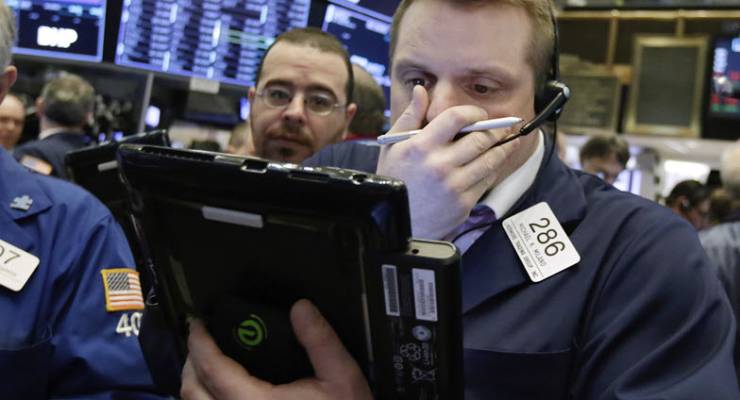
The business world had a tumultuous 2018. But in a year of fraud, mediocrity and plain bad business, there were some shining lights.
Totally Unexpected Corporate Collapse of the Year
After being one of the best performed stocks on the ASX in 2017 and hitting a market value of $840 million, video production and boiler room business Big Un experienced somewhat of a fall from grace, after the AFR revealed that its customers were only able to pay their bills after being lent money by a company associated with Big Un. It has since been suggested by Big Un’s administrator that the business was most likely insolvent in 2017.
Tweet of the Year
In the old days, when Warren Buffett mused on a company’s prospects, or Bill Gross proffered his views on bond rates, the market would react accordingly. Now it appears share prices are more driven by the tweets of the scions of the Kardashian-Jenner clan.
Snap Inc, the parent company of Snapchat, dropped $1.7 billion — yes, billion — after the 21-year-old Kylie Jenner tweeted that she no longer uses Snapchat. Proving that you don’t mess with the Kardashian-Jenners, Snap’s share price currently sits at $5.92, down from a high of more than $27.
Good Riddance of the Year
Founder of disgraced blood-testing tech startup Theranos, Elizabeth Holmes, along with former company president Sunny Balwani, was this year charged by the SEC with fraud. The SEC alleges that they duped investors out of more than US$700 million through an “elaborate, years-long fraud in which they exaggerated or made false statements about the company’s technology, business, and financial performance”.
Theranos followed the well-trodden path of companies that have politicians on their board collapsing in a giant mess. On the board sat none other than current Secretary of Defence James Mattis, as well as Henry Kissinger, former secretary of defence Bill Perry, and former senators Sam Nunn and Bill Frist.
Trade of the Decade
Wesfarmers this year sold its Coles Supermarkets business for the not inconsiderable sum of $17 billion — but how did the decade-long adventure go? Overall, not super well. Back in 2006, Wesfarmers and Amazon were both worth around $40 billion. Today, Wesfarmers (and Coles combined) market cap is around $52 billion, Amazon meanwhile has a market value of AU$1.1 trillion.
Columnist of the Year
To long-time Chanticleer writer, Tony Boyd, has had another year he’d rather forget. Boyd’s lobbying against a banking royal commission turned out to be slightly off base, with the columnist once claiming that “the last thing Australia needs is a royal commission into our world class banking system”.
But that wasn’t even the worst thing Tony has said. In June, Boyd claimed that Brisbane-based fund manager, Blue Sky, was “well on the way to meeting its target of having $10 billion in funds under management and being the home-grown version of Wall Street alternative asset giants Blackstone and KKR” and that “there is an element of the tall poppy syndrome wrapped up in the negativity towards Blue Sky. Many of the rumours have been proven to be wrong.” Boyd’s confidence was a tad misplaced, with the company’s share price falling 94%, and only being saved from collapse by US vulture fund Oaktree.
Litigation of the Year
Multi-millionaire Antony “the Cat” Catalano made his fortune after he left Fairfax in 2008, creating a rival real estate magazine, before selling it back to (former) friend, Greg Hywood. Cat amassed a couple hundred million and was appointed CEO when Domain was spun off, until he stepped down earlier his year.
Fast forward to December, the Cat, with alleged backing from billionaire former Pratt heir Alex Waislitz, attempted a last-minute legal bid to try to stop Fairfax’s merger with Nine from happening. While Catalano’s bizarre legal acrobatics amounted to nothing, he did have a small win over his former friend — Australia’s strange takeover laws meant that Fairfax was forced to pay for Catalano’s entire legal bill, which meant even when the Cat lost, he really won.
CEOs of the Year
In more uplifting news, a couple of women CEOs of fast growing tech businesses showed how it should be done. Melanie Perkins, CEO and co-founder of Canva led her business to a $50.9 million capital raise and US$1 billion valuation after securing funding from Sequoia Capital and Blackbird. Meanwhile, Jodie Auster at Uber Eats continues to upstage, driving the private business to significant profitability, with experts suggesting the Australian brand of Uber Eats could itself be a unicorn.
Entrepreneur of the Year
A seven-year-old kid, simply known as Ryan, last year made US$22 million in income according to Forbes. Ryan has a YouTube show where he reviews toys. Based on income and growth rate (which doubled year on year), it’s not unreasonable to suggest Ryan’s business is worth upwards of AU$400 million. Not bad for a kid who gets to play with toys all day.
Adam Schwab is the author of Pigs at the Trough: Lessons from Australia’s Decade of Corporate Greed








That last one is beautiful. Hope it isn’t just a pair of pushy tech parents. Go Ryan.